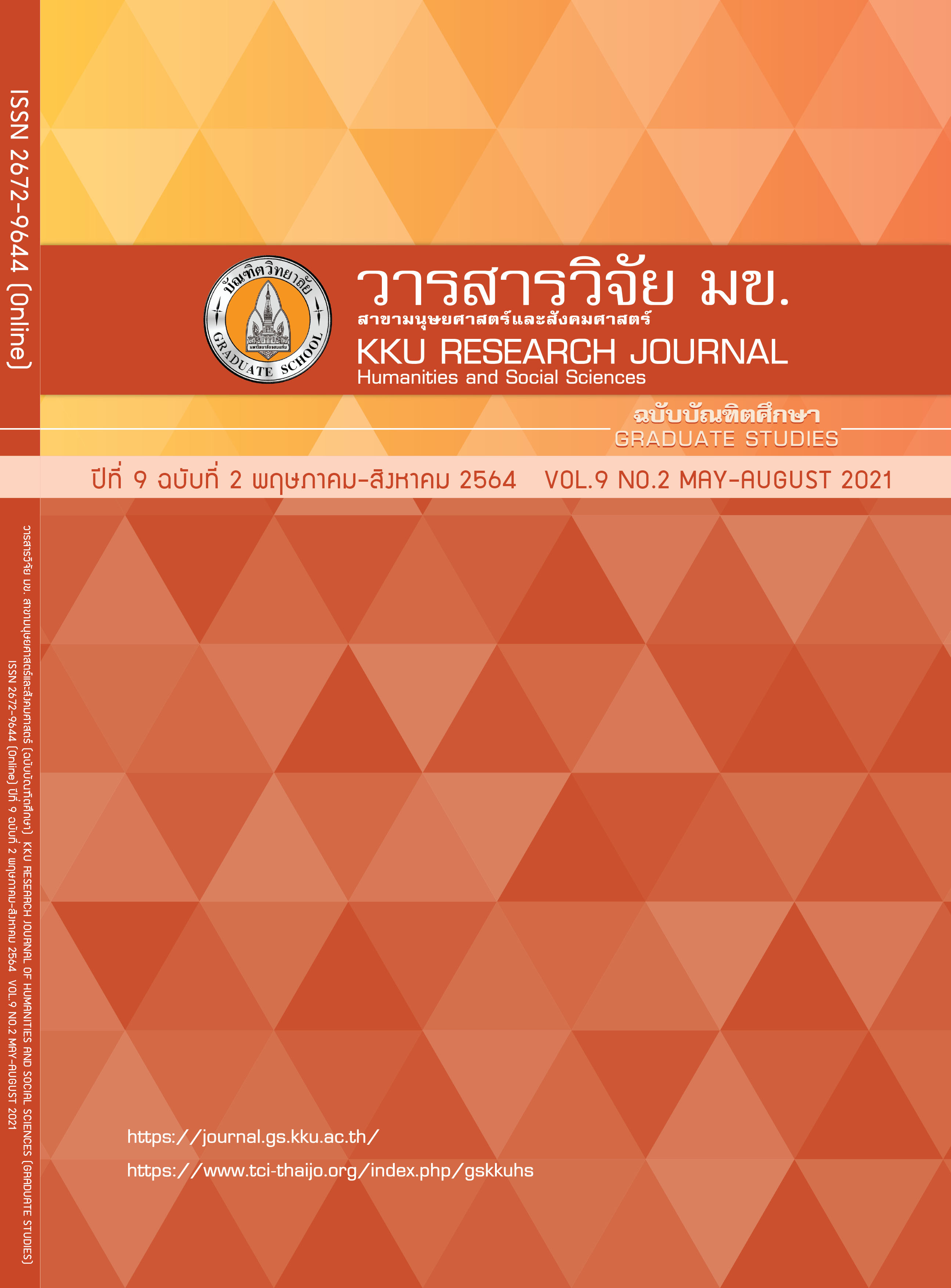The Effect of Learning Management by Competency-Based Learning blend with Web-Based Teaching and Problem-Based Learning according to MIAP Process to Develop Computation Thinking Skill of Vocational Certificate Student, Information Technology Subject
Keywords:
Competency based learning, MIAP Teaching Method, Computation ThinkingAbstract
This research proposes the model of learning management by Competency-Based Learning blend with Web-Based Teaching and Problem-Based Learning according to MIAP Process to Develop Computation Thinking Skills of Vocational Certificate Student, Information Technology Subject, and study the effect of learning management according to the proposed model using experimental research method. The sample was 40 students divided into 2 groups, namely the experimental group consisted of 20 students learned according to the proposed model, and the control group consisted of 20 students learned with the traditional method. The result revealed that 1) the students who learned according to the proposed model have computation thinking skill level after learning significantly higher than before that at a statistical level of .01 (Average score 23.30 and 15.10 accordingly). Moreover, in considering the sub-skills of computation thinking skills, it was found that all skills were improved significantly higher at a statistical level of .01, and 2) The result of comparing computation thinking skill level among 2 groups of students showed that the students who learned according to the proposed model have computation thinking skill level significantly higher than the students who learned with the traditional method at a statistical level of .01 (Average score 23.30 and 18.75 accordingly).
References
Pathumlangka S. Competency-based curriculum and assessment [Internet]. 2009 [cited 2020 Jan 9]. Available from: http://www.atsn.ac.th/images/Upload/file/CBCApplications.pdf. [inThai].
Office of the Vocational Education Commission. The 2019 curriculum for certificate of vocational education [Internet]. 2019 [cited 2020 Jan 9]. Available from: https://bsq.vec.go.th. [inThai].
Sabkerd S. Development of learning activities to enhance computational thinking with focus on STEM education learning management of the programming and application course for mathayomsueksa IV students of anukoolnaree school [M.Ed.thesis]. Maha Sarakham: Rajabhat Maha Sarakham University; 2016. [inThai].
Wing JM, Computation thinking. Communication of the ACM. 2006; 49(3): 33-5.
The Institute for the Promotion of Teaching Science and Technology. Computation thinking concept. In: Textbook for Basic Science and Technology (Computation Science) Secondary 4. Bangkok: Cuprint; 2018. p. 4-25. [inThai].
Kim B, Kim T, Kim J. Paper-and-pencil programming strategy toward computational thinking for non-majors: design your solution. Educational computing research. 2013; 49(4): 437-59.
Leonard J et al. Using robotics and game design to enhance children’s self-efficacy, STEM attitudes, and computational thinking skills. Science education technology. 2016; 25: 860-76.
Daungjun S. Effects of using stem education in physics on computational thinking ability of upper secondary school students [M.Ed. thesis]. Bangkok: Chulalongkorn University; 2018. [inThai].
Thanachawengsakul N. Ubiquitous learning management with MIAP to promote advertising and public relations creation of undergraduate students. Science Journal Chandrakasem Rajabhat University. 2019; 29(3 Suppl): 78-4. [inThai].
Ruanrojrung N. Problem-based instructional management to improve the academic achievement, daily life mathematical problem solving skills and attitude toward mathematical learning of Pratom Suksa Two students. Education research report. Bangkok: Chulalongkorn University; 2015. [inThai].
Mangmee P, Wannapiroon P, Nilsook P. Web based training for blended training by using MIAP process in a topic of creating online tutorial. Technical Education Journal King Mongkut's University of Technology North Bangkok. 2014; 5(2): 58-6. [inThai].
Srichailard U, Sinthanakul K. The development of web-based instruction on a learning management system for a competency-based lesson plan with blended learning and MIAP process for a computer graphics and animation course. Journal of Industrial Education. 2017; 16(3): 83-1. [inThai].
Tiantong M. Research methodology in computer education. Bangkok: King Mongkut’s University of Technology North Bangkok; 2012. [inThai].
Ling UL, Saibin TC, Naharu N, Labadin J, Aziz NA. An evaluation tool to measure computational thinking skills: pilot investigation. The national academy of managerial staff of culture and arts herald. 2018; 1: 606-14.
Palts T, Pedaste M. Model of learning computational thinking. In: Brodnik A, Lewin C, editors. Preliminary Proceedings of the IFIP TC3 working conference “A New Culture of Learning: Computing and next Generations”; 2015 Jul 1-3; Vilnius University, Lithuania.
Chimkul A. Effects of biology learning management based on STEM education approach on problem-solving ability and biology learning achievement of upper secondary school students [M.Ed. thesis]. Bangkok: Chulalongkorn University; 2016. [inThai].
Khemmani T. Teaching method: knowledge for efficient learning process management. 11st ed. Bangkok: Cuprint; 2007. [inThai].
Salaeh N, Mophan N, Waedramae M. Effect of STEM education on chemistry achievement, analytical thinking ability and instructional satisfaction of grade 10 students. Princess of Naradhiwas University Journal of Humanistics and Social Sciences. 2017; 4(1): 42-3. [inThai].




